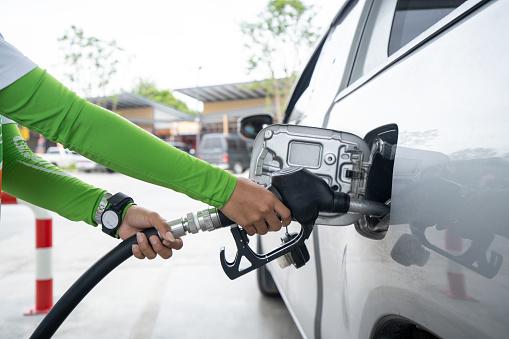
Corporate typical gasoline efficiency expectations are staying improved, starting up with the 2024 design calendar year. paksongpob kasempisaisin/iStock/Getty Images Plus
The federal rule establishing new car mileage criteria printed in the Federal Sign-up in all probability suggests that metallic forming organizations in auto offer chains will not be pressured also considerably outdoors their current technologies ease and comfort zones.
The National Highway Site visitors Protection Administration (NHTSA) printed its corporate average gasoline efficiency (CAFE) specifications for model a long time 2024-2026 in May well. The expectations maximize by 8% for every single of the a few several years above these from the earlier administration. That will not be far too considerably of a stretch for a lot of metal stamping organizations for the reason that they will not have to tinker too significantly with their metal and aluminum inputs.
Thomas McCarthy, senior vice president, head of technical protection and regulatory compliance, Stellantis, which is a combination of Fiat Chrysler Automobiles and the French PSA Group, explained some more recent systems such as economical AC compressor clutches and brushless blower motors will have to be utilised far more thoroughly than presently.
But the Alliance for Automotive Innovation (AAI) counters all those who argue integration of off-the-shelf technologies and components will not be a difficulty.
“This watch ignores that technologies just can’t merely be ‘bolted on’ to existing engines,” an AAI statement claimed. “Instead, they should be very carefully integrated into existing styles, necessitating engineering resources, and, in quite a few circumstances, new motor designs. A new engine style can cost as substantially as $1 billion.”
The NHTSA standards for 2024-2026 are supposed to align with the Environmental Defense Agency’s (EPA) greenhouse gasoline emission benchmarks for autos for 2023-2026. The EPA expectations translate to a 10% CAFE improvement in model year 2023 followed by 5% raises per 12 months through design calendar year 2026. That equates to a 7-g/mile more durable mark when evaluating the NHTSA standards to the EPA benchmarks in model years 2025 and 2026. That could be a difficulty.
NHTSA states in the proposal that the discrepancies in what the two agencies’ criteria need become lesser every single year, until alignment is reached. In a statement, the Motor & Devices Makers Association (MEMA) claimed it is not as self-confident: “However, due to the restrictions in flexibilities in NHTSA’s application, whole alignment is continue to elusive.”
Tesla Enters the Tariff Exclusion Combat
Massive-identify political heavyweights are finding involved for the to start with time in an effort to influence the U.S. Department of Commerce’s Bureau of Market and Security (BIS) to make it less difficult to get exclusions from the Portion 232 tariffs on imported metal and aluminum. (This calls for a 25% tariff on imported steel and a 10% tariff on imported aluminum.) Tesla, absent from the steel tariff discussion in the latest months, despite the fact that vocal in opposition to China tariffs early in the discussion, is weighing in now. The business is concerned about snags in its domestic source chain which reaches 40 states in the U.S.
Miriam Eqab, Tesla’s associate standard counsel for trade, claimed though the business desires a nutritious domestic steel producing business, the electric powered vehicle manufacturer is owning complications obtaining the metal it demands from U.S. suppliers and is having its exclusion requests thwarted.
“While Tesla has been granted many exclusions, the corporation has had other submissions for exclusions denied owing to the submission of questionable, unsupported objections by domestic producers,” she wrote. “BIS’ apparent reliance and/or deference to these objections has built the exclusion system inequitable and foreclosed justified tariff aid based mostly on actual unavailability of domestic provide.”
In a independent statement, Tri Star Metals mentioned its growth options have in some cases been hindered by denied exclusion requests. Tri Star, a distributor of stainless-metal bar, rod, and wire, and a supplier of semifinished goods to more than 3,000 prospects in the U.S., stated, “The deficiency of formality and uncertain character of the Segment 232 exclusion system has produced lengthy-expression organizing and strategic financial investment hard, inhibiting our means to mature Tri Star’s operations.”
But metal manufacturers and the steelworkers countered that importers are abusing the exclusion approach. Roy Houseman, legislative director for the United Steelworkers, argued: “We are worried, nonetheless, that the gains that have been produced in rebuilding the domestic metal sector could be place at possibility if the energy of the 232 tariffs is more eroded through elevated place exemptions and item exclusions that are not justified.”






